



 Tech & IT
Tech & IT
 Business
Business
 Coding & Developer
Coding & Developer
 Finance & Accounting
Finance & Accounting
 Academics
Academics
 Office Applications
Office Applications
 Art & Design
Art & Design
 Marketing
Marketing
 Health & Wellness
Health & Wellness
 Sounds & Music
Sounds & Music
 Lifestyle
Lifestyle
 Photography
Photography
More Learnfly
Business Solution Become an InstructorLinux Certification validates expertise in operating system administration and management within a Linux environment. Certified professionals demonstrate proficiency in system configuration, security, and troubleshooting. This certification underscores skills essential for effectively managing Linux-based servers and systems, making individuals valuable assets in diverse IT environments.
.jpg)
By : Dr. Mohammed Nauman
Get in the rhythm of the command line as a first step towards Linux System Administra...
4.4 794
2:28:12 hrs 24 lectures All Level

By : Twinkle Sharma
Empower Yourself with Bash Scripting: A Comprehensive Journey into Automation for Beg...
4.5 984
12 lectures Beginner Level
By : Sherif Salah-EL-Din
Learning Kali Linux From Zero to Hero...
4 1325
2:46:50 hrs 21 lectures Beginner Level

By : ZTRIX
the only linux commands you need to manage 95% of the linux work...
4.8 8394
26 lectures Beginner Level

By : Jaikishan Mohanty
This is an introductory course to the Linux command line & Learn from the Scratch (In...
4.8 9719
3:49:46 hrs 32 lectures Beginner Level

By : Omid Koushki
Docker tutorial from A to Z...
4.6 7920
70 lectures All Level

By : Seyed-Farshid Miri
Learn +200 modern & practical industry-proven Linux tools + project-based shell scrip...
4.6 9203
1:20:21 hrs 42 lectures All Level

By : AFROZULLA KHAN Z
Computer Forensics...
4.3 10051
1:43:25 hrs 28 lectures All Level

By : Sekhar Metla (Microsoft Certified Professional) Sudha
Learn Linux skills in this class to get promoted or start a new career as a Linux adm...
4.1 6577
6:59:29 hrs 52 lectures All Level

By : Shankar AR
Crash course on Linux basics for Beginners....
4.1 68120
4:13:0 hrs 38 lectures Beginner Level












Learn more topics in various categories at one place. Explore unlimited courses in other categories and up-skill yourself today.

 Jazeb Akram
Jazeb Akram 4.2 771147 Beginner Level

 John Hedengren
John Hedengren 4.1 569049 All Level

 Ranjan Pandey
Ranjan Pandey 4.1 346717 All Level

 Muhammad Ahsan Pervaiz
Muhammad Ahsan Pervaiz 4.2 101323 All Level

 Pieter Vliegenthart
Pieter Vliegenthart 4.6 100906 All Level

 Jerome P.
Jerome P. 4.8 100861 All Level

 Senol Atac
Senol Atac 4.9 100078 All Level

 Vikas Munjal
Vikas Munjal 4.8 100057 Beginner Level

 Avinash A
Avinash A 4.8 99993 All Level
.jpg)
 Dr. Mohammed Nauman
Dr. Mohammed Nauman24 Lectures Beginner Level

 Arne Wernien
Arne Wernien47 Lectures Beginner Level
 SiemHunters Learning
SiemHunters Learning50 Lectures Beginner Level

 Twinkle Sharma
Twinkle Sharma 12 Lectures Beginner Level

 Asif Khan
Asif Khan106 Lectures Beginner Level

 Asif Khan
Asif Khan166 Lectures Beginner Level

 Sherif Salah-EL-Din
Sherif Salah-EL-Din21 Lectures Beginner Level

 ZTRIX
ZTRIX 26 Lectures Beginner Level
.jpg)
 TAL .
TAL .46 Lectures Beginner Level
.jpg)
 TAL .
TAL .56 Lectures Beginner Level
.jpg)
 TAL .
TAL .31 Lectures Beginner Level

 TAL .
TAL .117 Lectures Beginner Level

 TAL .
TAL .88 Lectures Beginner Level

 Jaikishan Mohanty
Jaikishan Mohanty32 Lectures Beginner Level

 ILANCHEZHIAN K
ILANCHEZHIAN K10 Lectures Beginner Level
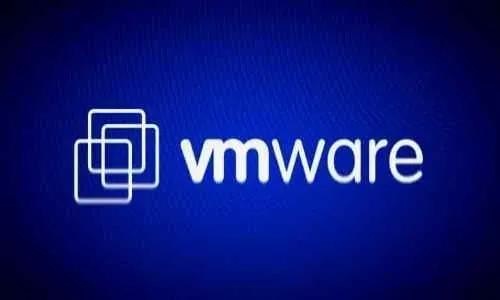
 ILANCHEZHIAN K
ILANCHEZHIAN K52 Lectures Beginner Level

 Omid Koushki
Omid Koushki70 Lectures Beginner Level

 Seyed-Farshid Miri
Seyed-Farshid Miri42 Lectures Beginner Level

 AFROZULLA KHAN Z
AFROZULLA KHAN Z28 Lectures Beginner Level

 Sekhar Metla (Microsoft Certified Professional) Sudha
Sekhar Metla (Microsoft Certified Professional) Sudha52 Lectures Beginner Level

 Alexander Gorbunov
Alexander Gorbunov 23 Lectures Beginner Level

 Shankar AR
Shankar AR38 Lectures Beginner Level
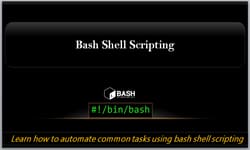
 Narendra Kumar Reddy Polu
Narendra Kumar Reddy Polu64 Lectures Beginner Level
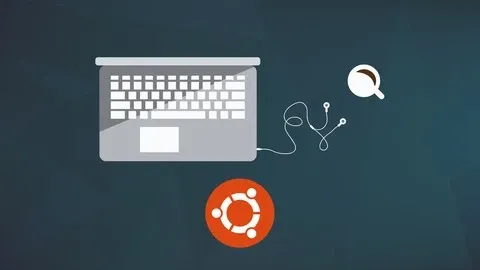
 Joseph Delgadillo
Joseph Delgadillo86 Lectures Beginner Level

 Abhishek Roshan .
Abhishek Roshan .58 Lectures Beginner Level

 Theologos Baxevanos
Theologos Baxevanos49 Lectures Beginner Level

 Muhammad Y Efendi
Muhammad Y Efendi45 Lectures Beginner Level

 koduru sridevi
koduru sridevi6 Lectures Beginner Level

 Muhammad Y Efendi
Muhammad Y Efendi138 Lectures Beginner Level

 Muhammad Y Efendi
Muhammad Y Efendi55 Lectures Beginner Level

 Shikhar Verma
Shikhar Verma48 Lectures Beginner Level

 Automation Talks
Automation Talks47 Lectures Beginner Level

 Russell Yonkers
Russell Yonkers29 Lectures Beginner Level

 Corey Charles
Corey Charles17 Lectures Beginner Level

 Cristian Calinescu
Cristian Calinescu48 Lectures Beginner Level

 Samuel OJO
Samuel OJO15 Lectures Beginner Level

 Harshit Srivastava
Harshit Srivastava8 Lectures Beginner Level
Linux is an open-source operating system kernel that forms the basis for various Unix-like operating systems. Certification in Linux, such as Linux Professional Institute Certification (LPIC) or Red Hat Certified Engineer (RHCE), is crucial for individuals in IT, validating their skills in managing and administering Linux-based systems.
Pursuing Linux Certification is essential for IT professionals, system administrators, and developers working in environments that utilize Linux. It provides recognition of proficiency in Linux system administration, security, and troubleshooting, enhancing career opportunities in the IT industry.
Skills required for working with Linux include command-line proficiency, system administration, shell scripting, understanding of Linux file systems, network configuration, and security practices. Familiarity with package management systems and troubleshooting common Linux issues is also crucial.
Prepare for Linux Certification exams by gaining hands-on experience with Linux distributions, using official study materials provided by the certifying body, and participating in Linux-specific training programs. Engage in practical exercises, set up Linux servers, and deepen your understanding of Linux system administration.
Linux Certifications, such as LPIC or RHCE, are typically valid for a certain period, often three years. To maintain certification, individuals can either retake the current version of the exam or earn continuing education credits by participating in relevant training, conferences, and activities that contribute to their ongoing professional development in Linux. Regularly updating skills ensures the continued relevance of the certification in the dynamic field of Linux administration.





